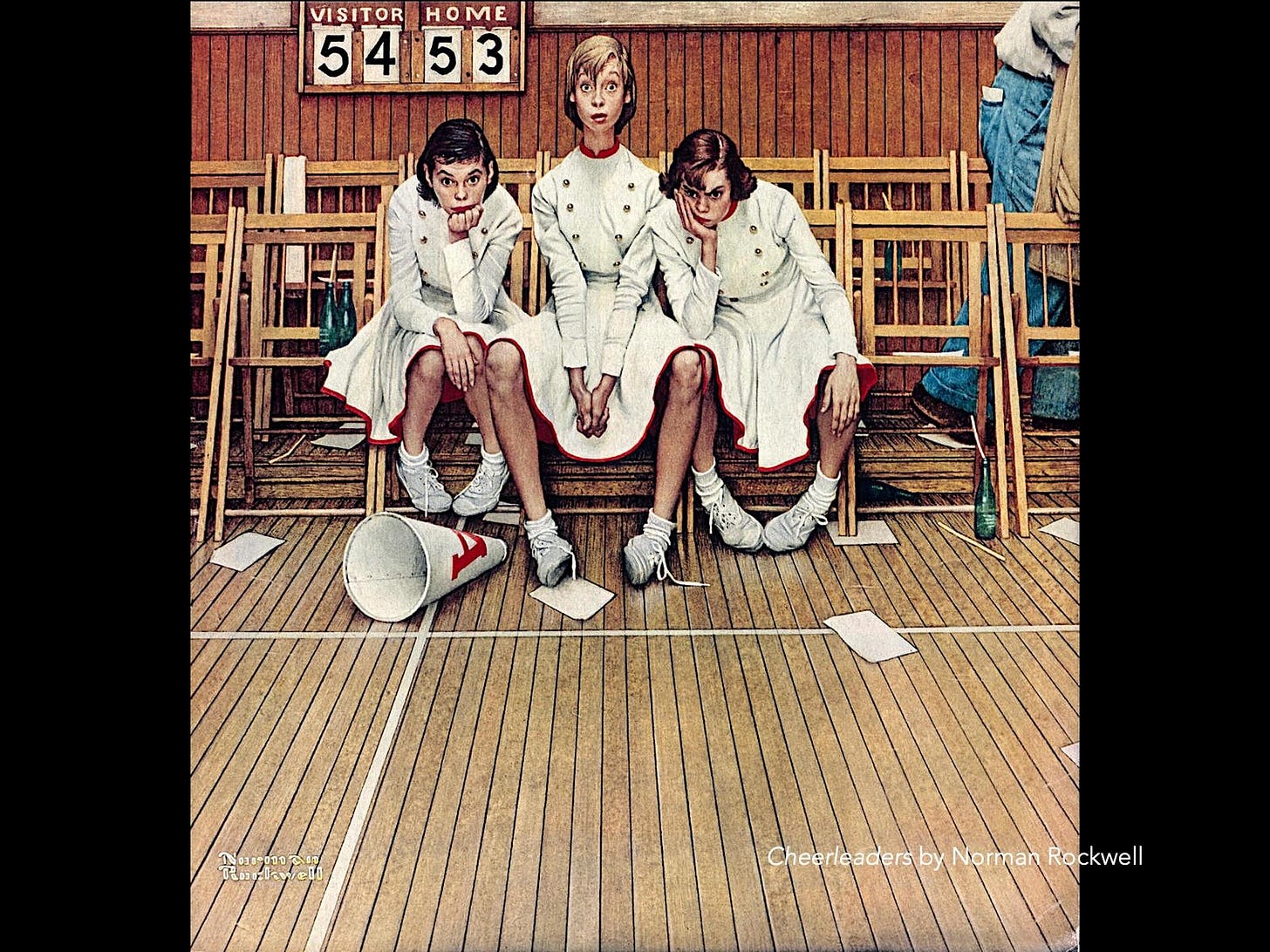George Orwell once wrote: “Serious sport has nothing to do with fair play. It is bound up with hatred, jealousy, boastfulness, disregard of all rules, and sadistic pleasure in witnessing violence; in other words, it is war minus the shooting.”
He was very, very wrong; but also, quite right.
Serious sport can certainly fuel hatred, jealousy, boasting, cheating, and sadism in some people. However, in others it promotes courage, self-discipline, a commitment to honesty and fair play, and a sense of justice – in short, good character.
Whether it‘s the Super Bowl or a squash match between two aging businessmen, sport carries deep lessons for leadership and life that not only reflect the wider culture, but also help shape it. The self-righteous tut-tutting of sports journalists, telling us it‘s only a game, when emotions run high after a defeat suffered by our team, is woefully uninformed.
Sport is an expression of the play instinct that human intellect directs towards the creation of culture. At the very origins of civilisation, we find an innate sense of play manifesting itself in different ways, some serious, others playful. These various play forms give expression to the human affinity for rhythm, harmony, symmetry, dramatic conflict, heroic endeavour, and consummation, and in so doing create culture.
The sense of play is strongly associated with striving for excellence, earning the esteem of others, and aesthetic fulfilment. Music, art, and logic all find expression in the different forms of play.
Johan Huizinga in Homo Ludens tells us: “In myth and ritual the great instinctive forces of civilized life have their origin: law and order, commerce and profit, craft and art, poetry, wisdom, and science. All are rooted in the primeval soil of play.”
And George Will noted that: “Greek philosophers considered sport a religious and civic undertaking…morally serious because mankind’s noblest aim is the loving contemplation of worthy things, such as beauty and courage.”
The word play is scarcely able to cover its astonishing range of meanings. Play implies fun, but is usually taken seriously, and not only must you play the game, but you can engage in wordplay, horseplay, child‘s play, or a power play, and you can choose whether to play fair, play dirty, play your part, play the fool, play for keeps, play the field, play for time, play fast and loose, play your cards right, play havoc, or perhaps write a play, or play the guitar or violin, or just play down the fuss and become someone else‘s plaything. And so on.
So we shouldn‘t be surprised that playing the game is as important in business and the professions as it is in sport and all forms of play. Not for nothing do corporates pay through the nose to have sporting heroes give motivational talks to their teams.
And consider how passionately successful CEOs emphasise that their achievements rest on making their work fun.
Business isn‘t supposed to be a game, schooling isn‘t supposed to be a game, nor socialization, nor personal development – yet sport is all of those and much more besides.
There is absolutely no reason to be embarrassed by the expansive role it plays in our society. And the technocrats, who see the purpose of life as making money, and people as mere economic units, should note that sport contributes almost three percent of national GDP in the US, and certainly much more if its immeasurable influence on other areas of the economy is taken into account.
Consider the realities of sport, and play in the wider sense, in our lives. It is an inescapably moral endeavor, with the conduct of players, coaches, administrators, officials, and spectators constantly judged by everyone. Sport is important in its own right, and doesn‘t have to be the means to some other purpose, like making money. If two professional boxers agree to donate their earnings to charity, they will still be motivated to win the bout.
Sport is a metaphor for life that unfolds in its own time and space, offering glimpses of the honour, beauty, and virtue mysteriously related to human fulfilment. It releases our emotions – exhilaration, tension, fear, anger, frustration, wonder, and euphoria – challenging us to show the world the kind of people we are.
Moreover, sport kindles creativity as it feeds on our competitive spirit. It demands ongoing strategic and tactical thinking, endless skill development, and unbridled innovation in technology, organization, marketing, and many other areas. And sport provides our clearest understanding of three vital concepts in business – leadership, teamwork, and professionalism.
However, sport does not in itself drive the development of character and culture. It is the furnace in which they are formed, but the driver is the human will, influenced, positively or negatively, by intellect and the passions. The play instinct is released in the arena of relationships, where we have to choose for ourselves how we play the game of life.
Professional sport is not to blame for the corruption now rife within; people are – those who have chosen to be dishonest, undermining the game to promote their own gratification. They are the spoilsports. And please don‘t excuse their failings by indicting society at large for being obsessed with winning. That‘s like blaming art for the failings of poor artists. Winning is an essential part of all play.
James Schall spells out the politically incorrect reality: “The real reason we play the game is to find out who wins, and the style with which they play to win. This is why games are fascinating, why we play them; because that is the only way to find out who plays better, who plays best of all.”
Orwell was wrong about sport having nothing to do with fair play – fair play is precisely what it‘s about. And sportspeople who honour that ideal make a priceless contribution, cultural and economic, to society.





